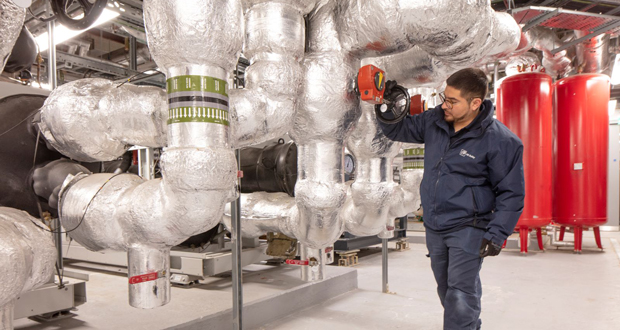NG Bailey has had its long-term target to achieve net zero emissions by 2045 approved by the Science Based Targets Initiative (SBTI).
The independent engineering and services business has set a target to achieve net zero by 2045 for its scope 1, 2 and 3 greenhouse gas emissions.
As part of its long-term target, NG Bailey has committed to reduce greenhouse gas emissions for sources it owns or controls directly (Scope 1 and 2) by 90 per cent, as well as reducing emissions from its wider supply chain (Scope 3) by 90 per cent by 2045.
The new target is in addition to its existing near-term targets, approved in 2022, which include a commitment to reduce absolute Scope 1 and Scope 2 greenhouse gas emissions by 50 per cent by 2031, and that 75 per cent of its suppliers will have science-based targets in place themselves by FY2027.
As well as setting future targets, NG Bailey has already taken significant steps to reduce its own emissions as part of its Net Positive responsibility strategy.
All the electricity at sites where NG Bailey has operational control are now from renewable sources. It is phasing out diesel and petrol cars within its fleet by 2025, with 91 per cent of its company car fleet now battery or electric plug-in hybrid. It is also undertaking a trial of electric vans within its fleet and looking to the future and what alternative fuel solutions may be available, including for plant.
Natalie Wilkinson, Head of Responsibility at NG Bailey, said: “We have a long history of being a responsible business and were proud to become one of the first UK construction and engineering businesses in the UK to have our near-term science-based targets validated in 2023. Receiving this latest validation from the Science Based Targets initiative for our long-term net zero target demonstrates just how seriously we are taking this as a business and our ongoing commitment to put more into society, the environment, and the global economy than we take out.”





